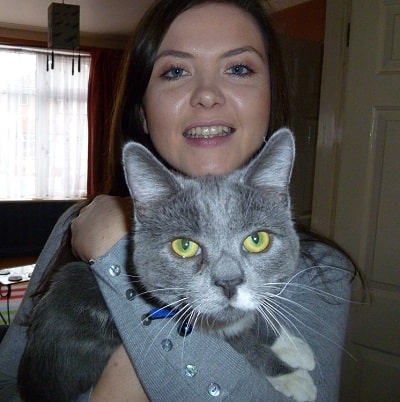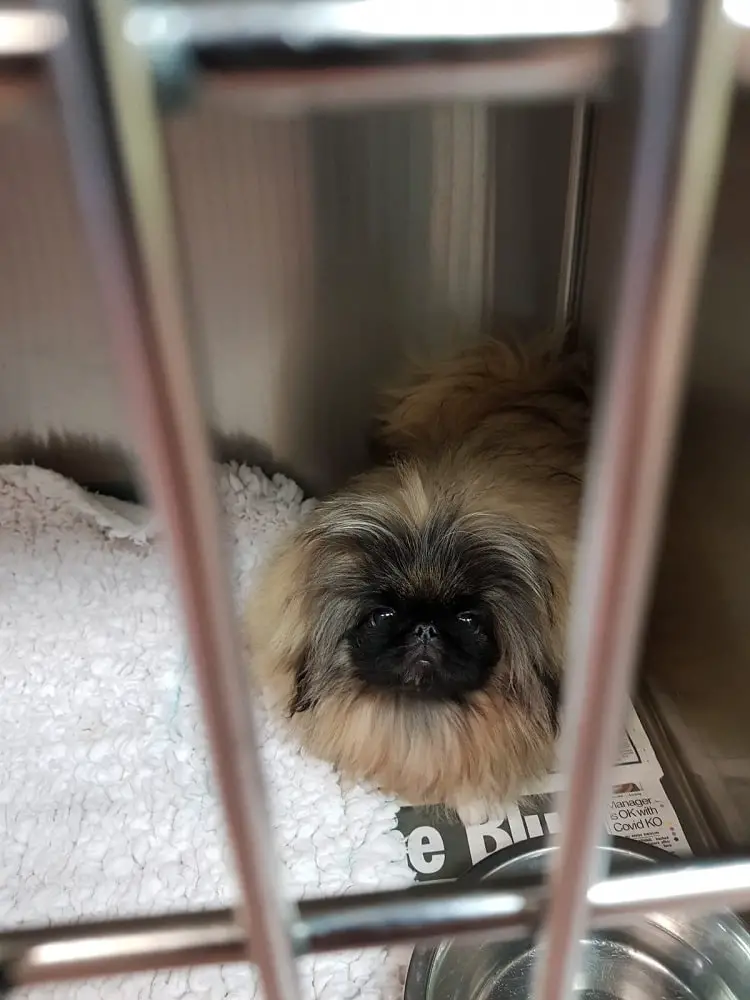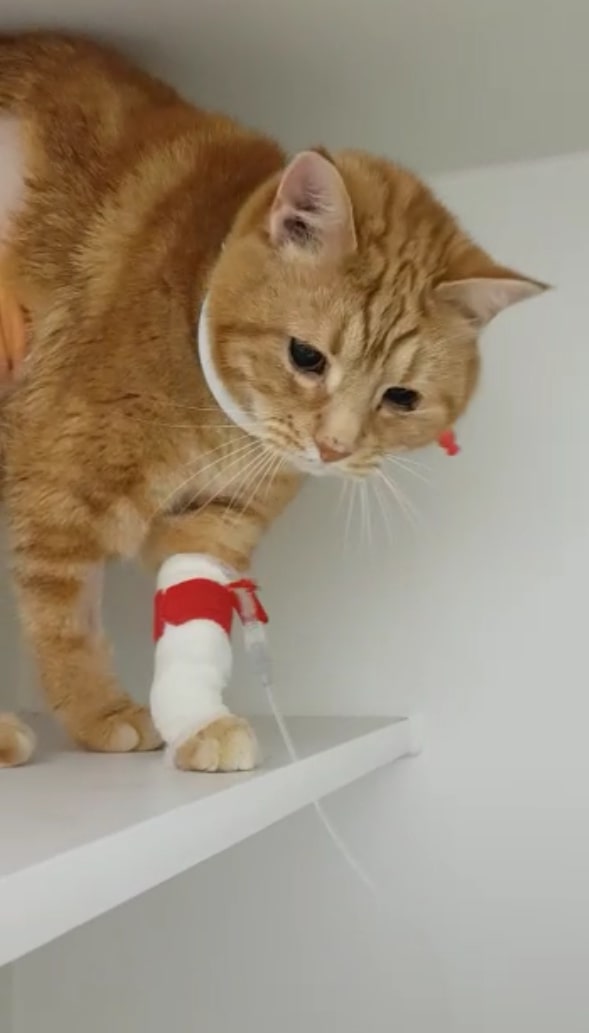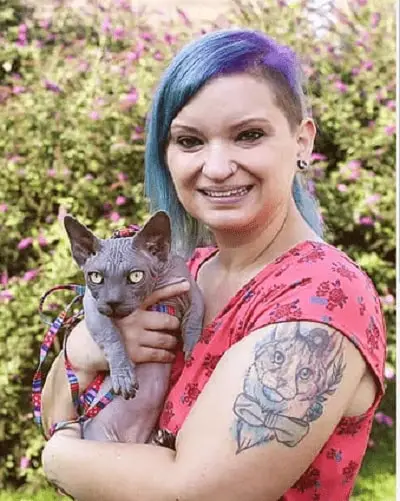Day in the life of
Vet Nurse – Lucie Wilkins

How did you become a Vet Nurse?
I have been a vet nurse for over 10 years now. I considered a career in Veterinary Nursing because it can be a rewarding path for someone who wants to work with animals, but doesn’t want to take on some of the responsibilities of a vet, such as surgery.
I had to complete a course accredited by the Royal College of Veterinary Surgeons to get qualified as a registered vet nurse here in the UK. I think it’s a similar process in the USA and other countries too. I was able to get a job as a trainee vet nurse for a small vet practice, and at the same time, I was able to do a work-based Diploma in Veterinary Nursing.
The diploma took me two and a half years to complete and led me on to becoming a qualified vet nurse. Once I was qualified my salary went up, and I had more job opportunities available to me. As a qualified vet nurse, I continue professional development by undertaking new courses to upgrade my knowledge and skills.
I have worked both in a general practice setting and also in a more specialised role in the oncology department in an animal referral hospital. In a small general practice such as the one I was working in to begin with, a team typically involves one vet and a team of vet nurses. In this case, it was one head vet nurse and one trainee vet nurse on shift during work hours.
What did you do as a Vet Nurse?
As a nurse working in a small vet practice, I was taking care of a range of animals, but mainly dogs and cats. It was my duty to provide routine health care as well as assist in emergencies. I worked alongside the veterinary surgeons and aided them with their daily tasks.
My key tasks there were:
- Helping with vaccinations, neutering, worming, and general health checks.
- Restraining and helping to calm animals.
- Providing nursing care for animals that needed to stay in. (Monitoring, feeding, walking, and grooming)
- Diagnostic testing, such as taking blood and urine samples for analysis and performing x-rays.
- Preparing animals for surgery and monitoring anesthesia.
- Assisting veterinary surgeons with operations.
- Dressing minor wounds.
- Helping with dental cleans.
- Communicating with pet owners to give them advice and guidelines.
Promoted to Head Vet Nurse
Once qualified, I was promoted to head vet nurse. In this role, I was the first person clients spoke to when they brought in their pets. I would often offer them advise on the diet and medicine schedule for their pets, and any other after-care details that may be important. While pets were not being seen by a vet I would typically be doing some receptionist work, which involved helping with general admin tasks, and the day to day running of the business.
Further into my career as a vet nurse, I managed to land a job at the Royal Vet College which is a well-known referral hospital for animals. This role appealed to me because it was dealing with more complex cases of care, and it was working only with animals, and no front of desk receptionist work.
Working at a referral hospital is a more specialised role. You will typically have different nurses with different specialities. It also typically pays more than a general practice nursing role.
I currently work in the oncology department at the referral hospital which involves most of the general tasks I listed above, but it’s more of a hands-on role, spending more time one on one caring for the animals and helping to rehabilitate them. Also helping with more specialised oncology based treatments such as chemotherapy.
Skills and qualities that I think would be valuable if you wanted to get into Vet Nursing
As a vet nurse, I have to do a lot of restraining of dogs and cats, who are anxious and can be difficult to tame. I’m often called upon by my colleagues when there’s a cat that doesn’t want to cooperate. Being confident when it comes to restraining and calming animals is always a plus. Getting the odd bite and scratch is inevitable so you must be prepared for that!
You should also be OK with seeing open wounds, and a lot of blood! I worked with nurses in the past who struggled with those types of things, and in this job, you won’t last long if you can’t bear the sight of blood. We often have to help with surgeries so you can’t be squeamish!
You should be able to work well under pressure. As a vet nurse, I’ve often have to deal with complications on the spot as well as a heavy workload, so it can be quite demanding at times.
You should be a good team player. Since starting out as a vet nurse I have always had to work as part of a team, be it with a vet or other nurses, we are always working together even if we do have our own designated tasks.
Pros of Vet Nursing
- Ability to get experience and qualifications on the job as a trainee vet nurse.
- Getting to work with animals all day, which I love.
- The ability to learn more, advance my career and specialise in different areas.
- Fair pay with a secure career and job benefits such as paid holiday and pension plan.
- You take on many tasks of a vet, without having to do surgery.
Cons of Vet Nursing
- One of the biggest cons for me is sometimes having to work unsociable hours such as evenings and weekends. It can be hard to balance family life.
- Having to deal with difficult clients can arise from time to time, humans will be humans!
- Pay is not as good as a vet’s salary.
- The workload can be high and very demanding, both physically and emotionally.
- Restraining animals can be hard and sometimes dangerous.
- Training is demanding, you need to take in a lot of information.






